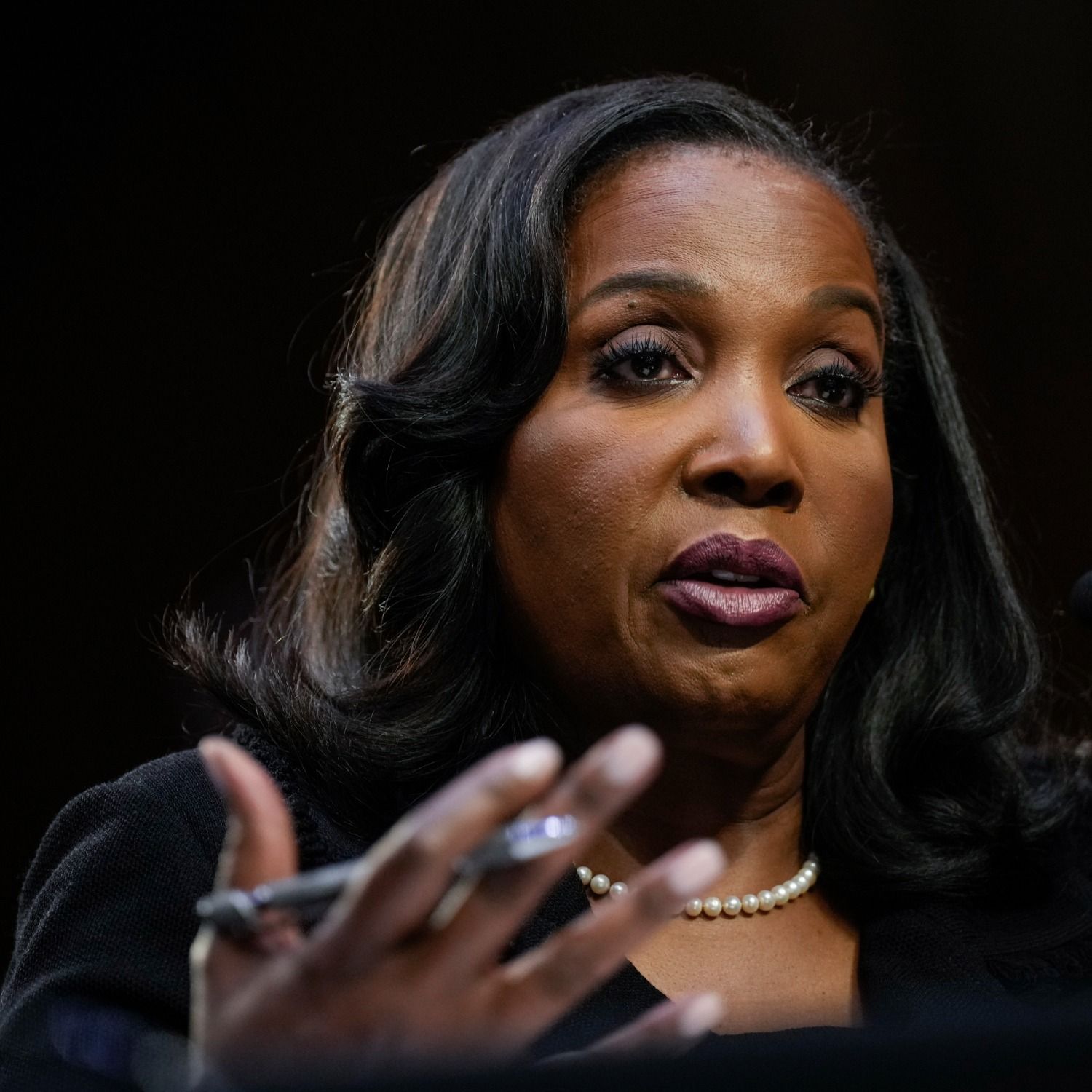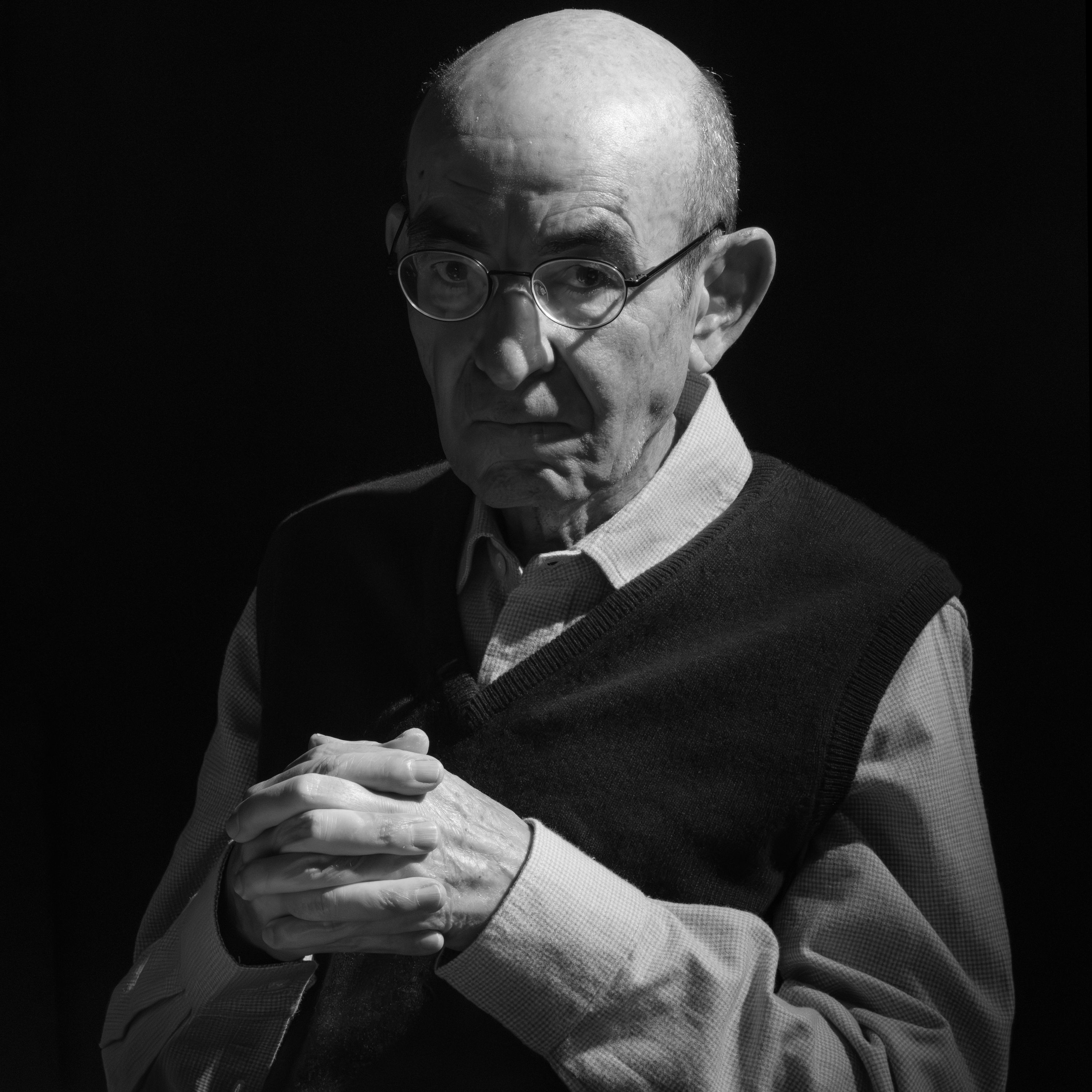Trump’s Takeover of the Fed
Ben Casselman, chief economics correspondent for The New York Times, discusses why Mr. Trump’s route to controlling the Fed passes through the governor, an economics professor named Lisa Cook.
Press play and read along
Transcript
Speaker 1 Brought to you by the Capital One Saver Card. With Saver, you earn unlimited 3% cash back on dining, entertainment, and at grocery stores.
Speaker 1 That's unlimited cash back on ordering takeout from home or unlimited cash back on tickets to concerts and games. So grab a bite, grab a seat, and earn unlimited 3% cash back with the Saver card.
Speaker 1
Capital One. What's in your wallet? Terms apply.
See capitalone.com for details.
Speaker 2 From the New York Times, I'm Michael Bobarro. This is the daily.
Speaker 2 President Trump's decision to try to fire a member of the Federal Reserve's governing board is his most audacious attack yet on the independence of the country's central bank.
Speaker 2 Today, Ben Castleman on the story of how Trump decided that the road to taking over the Fed ran through an economics professor named Lisa Cook.
Speaker 2 It's Wednesday, August 27th.
Speaker 2
Thanks for doing this on short, relatively short notice. We appreciate that.
Yeah, happy to do it. I mean, it's never good news
Speaker 2 when I'm on this show. No, it's never good news when you're on this show.
Speaker 2
Ever. Shall we get started, Ben? Let's do it.
Okay.
Speaker 2 Ben, just to start, tell us about the Federal Reserve governor now at the center of this political, economic, and we assume soon enough, legal firestorm. Lisa Cook is a really remarkable figure.
Speaker 2 I've spent quite a bit of time with her over the years, studying her career from before she joined the Fed Board of Governors, before we started this whole controversy that she's in the middle of now.
Speaker 2 And, you know, it starts in the 1960s in Georgia.
Speaker 3 I was growing up in the desegregating South, and this was called a freedom of choice period. So white parents could choose to go to a school or they started their own white flight schools.
Speaker 2 And she tells a really powerful story, including in an interview with the International Monetary Fund a few years ago, about this period where schools across the South are being desegregated.
Speaker 2 And she and her sisters are literally the ones doing the desegregation.
Speaker 3 Some of them weren't accustomed, I guess, to seeing black children. So I was definitely beaten up.
Speaker 2 And she's attacked, physically attacked by a classmate called a racial epithet.
Speaker 3 And the reason I know that it was a racist incident was because the child called me the N-word and I'd never heard it before and went home to ask what that meant.
Speaker 2 And bears to this day a physical scar above her eye from that incident. Wow.
Speaker 3 I still have a scar where I was hit in my eyebrow.
Speaker 2 Eventually, she goes to Spelman College in Atlanta and kind of by the by falls in love with economics. I mean, she says she didn't set out to become an economist.
Speaker 3 I figured it out, as it happened, at another place I never thought I might get to, Mount Kilimanjaro in Tanzania.
Speaker 2 But she
Speaker 2 fell in love with economics while climbing Mount Kilimanjaro. As one does.
Speaker 2 As one does, who among us?
Speaker 3 I was hiking alongside a British economist. who by the end of the track had me convinced that economics possessed the tools to address some really big and important questions.
Speaker 2 And then goes on, goes to University of California, Berkeley, earns a PhD in economics, and is really a pioneer as a black woman in economics.
Speaker 2 I mean, there really were not many at that time, and frankly, still are not that many. It's a field that is really
Speaker 2
male and white to this day. And she's talked about how that identity informed the work that she did as an economist.
Which is what?
Speaker 2 So her specialty is international relations. She's an expert on Russia
Speaker 2
and spent time there. She's worked at the Treasury.
She's worked in the White House. But probably her best-known research really grows out of her own experience.
Speaker 3 I sort of cut my teeth. working in an environment under uncertainty in the 1990s in Russia, right? So that's a level of uncertainty that I wouldn't wish on any economy.
Speaker 2 There's this major strain of research in economics about the importance of innovation to growth.
Speaker 2 And she's talked about how she sort of had this insight that it's pretty hard to innovate if you don't feel safe and if you're not being protected by the state.
Speaker 3
Uncertainty is a tax. It is a tax.
It is a tax on businesses. They can't plan.
They don't know how to invest in this environment and it keeps changing.
Speaker 2 So she talked about this in the context of Russia and post-Soviet Russia. But she researched it in the context of post-Reconstruction America
Speaker 2 and looking at patent applications by Black Americans during the period of lynchings and racial violence in the South coming out of Reconstruction.
Speaker 2 And perhaps unsurprisingly, once you stop and think about it, but something that had not been researched, when Black Americans were facing lynchings, they weren't filing a lot of patent applications.
Speaker 2
Right. Oppressed people do not have the freedom to innovate.
Don't have the freedom to innovate, don't have the freedom to invent, don't have the freedom to start businesses.
Speaker 2 And that, of course, has very significant implications for that specific group of people.
Speaker 2 But it also has implications, and this is really where her research went, for the economy more broadly, that if we want to ensure that we have the fastest growing and most innovative and most flexible economy possible, we need to make sure that all of our citizens are protected and feel physically safe and have their rights protected so that they can go and do these things.
Speaker 2 So on the strength of that research and on other work, she goes on to a successful academic career and takes on a really prominent role in trying to really reform economics from inside to try to diversify it, to try to diversify the set of perspectives.
Speaker 2 And that brings her onto the radar increasingly of the sort of leaders of the economics profession and eventually to President Biden, who in 2022 has an opening on the Federal Reserve Board of Governors, this very powerful set of policymakers, and he nominates her to fill one of those slots.
Speaker 2 A slot which we should say makes her one of the most important
Speaker 2
people in the U.S. economy.
And in that sense, the global economy. Yeah, absolutely.
There are seven Fed governors. We always talk about the chair, right?
Speaker 2 You and I and you and my colleagues have talked many times about Jay Powell and before that, Janet Yellen. But there's a board of governors and a larger committee of folks who make these decisions.
Speaker 2
They all get a vote. The chair doesn't carry extra weight.
And in nominating her, President Biden is setting her up to have enormous sway over the direction of the economy.
Speaker 2 And how did the confirmation vote go?
Speaker 4
Thanks, Senator Warner. Senator Haggerty of Tennessee is recognized.
Thank you, Mr. Chairman.
Speaker 2 It was a squeaker.
Speaker 4 But even more concerning to me, with respect to your nomination,
Speaker 4 is that your background, although very impressive as you covered with Senator Kennedy,
Speaker 4
doesn't seem related to the mission of the Federal Reserve. If I look at your list of publications and your speeches, it seems more like social science than it does economics.
and monetary policy.
Speaker 2
Could you describe that? She faced a lot of opposition. She faced a lot of attacks over her qualifications, over her academic record.
Why?
Speaker 4
Thank you. Well, monetary policy is a very blunt and a very potent tool.
And I would have expected someone with deeper experience in the monetary policy realm.
Speaker 4 But I appreciate your being here and thank you for your attention.
Speaker 2 Well, so it's important to remember this is a moment when the Senate is divided 50-50 between Democrats and Republicans.
Speaker 2 And this is sort of the early days, right, of the sort of Republican pushback against DEI and wokeism that we've seen, of course, continue and gain strength under President Trump.
Speaker 2 Now, I should say most of the economists I talk to push back against that very strongly, say that she had a record that
Speaker 2 was equivalent to many folks who have been nominated successfully for the Fed in the past.
Speaker 2 Not probably the strongest academic credentials that we've seen on the Fed, but notably, Jerome Powell doesn't have a PhD in economics at all.
Speaker 2 But she faced a lot of opposition, and the vote ultimately came down to a 50-50 tie.
Speaker 5 On this vote, the yays are 50, the nays are 50. The Senate being equally divided, the vice president votes in the affirmative and the nomination is confirmed.
Speaker 2 That was broken by Kamala Harris and put Lisa Cook on the board of governors.
Speaker 2 And that, of course, is where Lisa Cook starts to intersect unknowingly with President Trump's vision of the Federal Reserve.
Speaker 2 At that moment, he's out of office, but he and those around him are formulating plans for a return to power with documents like Project 2025.
Speaker 2 And they're rethinking the relationship between the president and the Fed.
Speaker 2 Yeah, I mean, you may recall that in his first term, President Trump was frequently very critical of the Fed and of Jay Powell, even though he was the one who had made Jay Powell the chair
Speaker 2 and had tried to pressure him into lowering interest rates back then.
Speaker 2 And by the time Trump returned to office, he really pretty clearly had this vision of taking more direct control over the Fed.
Speaker 2 He didn't waste any time in starting to badger Powell and the Fed more generally to lower interest rates and to sort of serve his goals.
Speaker 2 Right, which was very much at odds with the traditional vision of the Fed.
Speaker 2 We've talked about this a lot on the show as an independent policymaking body, because the thinking has always been you want economists who are thinking about the numbers and the long-term health of the economy driving those decisions at the Fed, not a president thinking about re-election and politics.
Speaker 2 Yeah, the whole idea of Fed independence is this sort of bedrock concept. That's clearly not a vision that Trump shares.
Speaker 2 And, you know, pretty quickly, this badgering of Powell turns into real threats to fire him, and he takes real steps in that direction. Right.
Speaker 2
He's sort of eventually persuaded not to go through with that. Right.
The thinking is it would be potentially cataclysmic in the markets.
Speaker 2 That's the thinking that he appears to have been convinced of that, at least for the time being. But he has not given up on this vision of trying to control the Fed and bend it to his will.
Speaker 2 And so he's looking for another way to achieve that.
Speaker 2 And that eventually leads him to target the board of governors
Speaker 2 and specifically to target Lisa Cook.
Speaker 2 We'll be right back.
Speaker 6 Did you know that at Chevron, you can fuel up on unbeatable mileage and savings? With Chevron Rewards, you'll get 25 cents off per gallon on your next five visits.
Speaker 6 All you have to do is download the Chevron app and join to start saving on fuel.
Speaker 6 Then, you can keep fueling up on other things like adventure, memories, vacations, daycations, quality time, and so many other possibilities.
Speaker 6
Head to your nearest Chevron station to fuel up and get rewarded today. Terms apply.
See ChevronTexcoRewards.com for more details.
Speaker 2 Now's the time to start your next adventure behind the wheel of an exciting new Toyota hybrid.
Speaker 2 With the largest lineup of hybrid, plug-in hybrid, and electrified vehicles to choose from, Toyota has the one for you.
Speaker 2 Every new Toyota hybrid comes with Toyota Care, two-year complimentary scheduled maintenance, an exclusive hybrid battery warranty, and Toyota's legendary quality and reliability.
Speaker 2
Visit your local Toyota dealer today, Toyota. Let's go places.
See your local Toyota dealer for hybrid battery warranty details.
Speaker 8
Dermatologists have long highlighted the benefits of indoor humidity for healthy, glowing skin. Dry air can start damaging your skin in just 30 minutes.
That's where Canopy Humidifier comes in.
Speaker 8 Recommended by leading dermatologists, the Canopy Humidifier is a completely reimagined humidifier with invisible clean moisture, the best kind for your skin.
Speaker 8
Go to getcanopy.co to save $25 on your purchase today with Canopy's filter subscription. Even better, use code Sirius to save an additional 10% off your Canopy purchase.
Your skin will thank you.
Speaker 2 Ben, once President Trump and those around him decide that they want to try to gain control over the Fed by targeting its board of governors, how do they find their way to Lisa Cook?
Speaker 2 So
Speaker 2 just remember the math here for a minute.
Speaker 2 Of the seven members of the board of governors when Trump takes office, five of them are Biden appointees. Two of them were nominated by Trump during his first term.
Speaker 2
One of those positions has already come vacant. So now Trump will have three.
To have a majority of the board, he needs a fourth. You are good at math.
Speaker 2
You know, this is why you have me on. It's the math.
So he needs one more. None of those positions are actually coming up anytime very soon.
Right, because the appointments are long.
Speaker 2 The appointments are intentionally long so that they are not subject to political interference. So the only way for him to get a majority of the board is to fire someone.
Speaker 2 And that's not an easy thing to do because under the Federal Reserve Act, which I'm sure you have read many times, under the law that governs the Fed, governors can only be fired for cause.
Speaker 2
And cause generally means dereliction duty, malfeasance, gross misconduct. It's pretty, pretty significant.
Yeah, it's not meant to be something light.
Speaker 2 And it's generally somehow related to the job that they have been appointed to do. This is, of course, the battle that's been going on about the possibility of Trump firing Powell.
Speaker 2
Is that he would need cause to oust Powell? He generally is not thought to have it. So he's looking around at other Fed governors.
Could he find it there? Could he find it there?
Speaker 2 And riding to his rescue is
Speaker 2 Bill Pulte,
Speaker 2
a man you may have never heard of. Not until now.
Who runs an agency you may not have heard of, or certainly don't spend a lot of time thinking of. Which is what?
Speaker 2 Which is the Federal Housing Finance Administration,
Speaker 2 the FHFA. And how does he ride to Trump's rescue here?
Speaker 2 So Bill Pulte, despite being in this sort of anonymous agency, has kind of emerged as one of Trump's premier attack dogs, enforcers.
Speaker 2 But in particular, he has used his position as the head of this mortgage agency. which gives him access to all of these records, right?
Speaker 2 Millions of records on people's mortgages, to mine those records for potentially damaging information against some of Trump's perceived enemies.
Speaker 2 So he accuses Letitia James, who's the New York Attorney General who helped lead investigations into President Trump's business practices. He accuses her of mortgage fraud.
Speaker 2 He does the same against Adam Schiff, senator from California, accuses him of mortgage fraud.
Speaker 2 Schiff helped lead the investigation in the the Trump impeachment trial during President Trump's first term.
Speaker 2 And last week, sort of out of nowhere, he does the same to Lisa Cook, to our central character here.
Speaker 2
It seems worth noting that both Letitia James and Lisa Cook are black women. In fact, black women who are the first black women to hold their respective jobs.
Yeah, that's right.
Speaker 2 And we don't know why Lisa Cook was targeted or whether race played any role in that.
Speaker 2 We do know that the Trump administration has often gone after people of color as it's been sort of taking the levers of power in government.
Speaker 2 And what exactly does Bill Pultey accuse Lisa Cook of doing when it comes to mortgages?
Speaker 2 So specifically, He says that in 2021, she bought a home in Michigan, where she was a professor at Michigan State
Speaker 2 and claims it in mortgage documents as her primary residence. Typically, when you buy a home, if it's your primary residence, you can get a lower interest rate on your mortgage.
Speaker 2
Right. The bank thinks you're going to be very reliable when it comes to paying for your primary residence.
Yeah, it's your primary residence. You're not going to risk losing that.
Speaker 2
So typically, you can get a lower interest rate. Crucially, we don't know here whether Lisa Cook did get a lower interest rate, but it seems likely that she did.
Two weeks later,
Speaker 2 Bill Pultey alleges she bought another home, condo in Atlanta, and also claims that in mortgage documents as her primary residence. Got it.
Speaker 2 Now, you can only have one primary residence at a time.
Speaker 2 And so the allegation here is that one of those homes could not have been her primary residence, and that therefore that that was a form of mortgage fraud.
Speaker 2 Certainly doesn't look good, but is it fraud?
Speaker 2
Yeah, it doesn't look good, right? She's buying two homes in two weeks, claiming them both as her primary residence. That doesn't seem great.
But look, we haven't seen the documents here.
Speaker 2
We don't know if there were mitigating circumstances. We don't know if this was an oversight, a mistake.
And none of this has been adjudicated, right? None of this has gone to a court.
Speaker 2
There's been no evidence presented. So we don't know at this stage.
What we don't know. Well, we don't know.
We certainly don't know that it's fraud at this point.
Speaker 2
What we do know is that President Trump immediately seizes on this as the cause he needs to push out Dr. Cook as a member of the Board of Governors.
Literally, for cause requires a cause.
Speaker 2
He says, this is my cause. Yeah.
Initially, he calls on her to resign. Then he says if she doesn't resign, he'll fire her.
Speaker 2 And then when she doesn't resign, he sends her a letter saying that she is terminated effective immediately for cause.
Speaker 2 He accuses her of, quote, deceitful and potentially criminal conduct in a financial matter. And he says that for those reasons, he's firing her.
Speaker 2 And from what you can tell based on your reporting, is the president on strong legal footing here in claiming that this is cause to fire her?
Speaker 2 That writing that she has two primary residences and mortgage mortgage documents is that legal justification.
Speaker 2 So we don't know, but we're going to find out because Lisa Cook says she's not resigning and, in fact, is suing to hold on to her position. And so this is going to be decided in a court of law.
Speaker 2 But we've spent the last 24 hours frantically calling legal experts and lawyers trying to understand this. And they say basically, probably not.
Speaker 2
Trump probably does not have particularly strong legal argument here. This involves private conduct from before she was a Fed governor.
It hasn't been tested in a court of law.
Speaker 2 But she now serves in a job where a big part of her role is to help set interest rates that include mortgage rates.
Speaker 2 So you can see a thread of a connection there. Whether that holds legally,
Speaker 2 we'll see. Again, certainly optically, right, it's not a good look.
Speaker 2 But as you say,
Speaker 2 she is determined to stay in this job. So putting the legal debate aside for just a moment, I'm curious as a student of the Fed and the American economy, what you have made
Speaker 2 of this firing, this saga. What has just been your gut reaction to it?
Speaker 2 So look, We can have the legal debate and the legal debate will play itself out, but I don't think we should be naive here, right?
Speaker 2 This wasn't a general crackdown on mortgage fraud that happened to catch up Lisa Cook, right?
Speaker 2 This was a targeted effort by the White House to find somebody on the board that they could find cause to fire so that the president can take control of the Fed. That's what's going on here.
Speaker 2
And as you and I have talked about many times, the independence of the Fed is really central to the functioning of the U.S. economy and the global financial system.
And this is
Speaker 2 the clearest, most present danger to that that we've seen in decades. That said, we have heard a lot of doomsday scenarios articulated since the beginning of this administration.
Speaker 2
Tariffs were going to be the ruin of the U.S. economy.
That really hasn't come to pass.
Speaker 2 Isn't it very possible he's going to eventually take over the Fed and everything's going to be fun?
Speaker 2
I mean, look, Michael, I came in today waiting for some big reaction in the financial markets. We didn't get it.
Markets look fine.
Speaker 2 And this isn't the first time I think that you and I have sat together ready for a big reaction in the financial markets that did not come.
Speaker 2 So markets aren't everything, right? But that is an indication that certainly many investors don't think that this is an imminent disaster.
Speaker 2 And as you say, the economy has so far held up more or less fine, right? There are cracks here and there, right? But it's not like we're plunging off a cliff. So we don't know where that heads.
Speaker 2 But I do think there is something important
Speaker 2 about the idea that we have data that we can trust, that we have institutions that operate with a measure of independence. And we wouldn't expect to see the impact of
Speaker 2 these kinds of assaults on those institutions today, tomorrow, even next year, right?
Speaker 2 These are things that have taken a generation to build up, and it could take time for the effects of their erosion to show through, but that doesn't mean that those effects are not real.
Speaker 2 I wonder what Professor Lisa Cook
Speaker 2 would think about all of this. Her most important research, Ben, as you said,
Speaker 2 was around what happens when you don't feel safe and secure in your position, when your government doesn't protect you?
Speaker 2 One fairly indisputable fact in this moment is that people who work for the United States government don't feel safe and secure in their work.
Speaker 2 And I wonder what Professor Cook would say
Speaker 2 about the implications of that.
Speaker 2 Yeah, I mean, a couple of people have made the point to me that there is an irony here that in some ways, the person who has the most insight into this moment in the U.S. economy,
Speaker 2 at least at the Fed,
Speaker 2 is Dr. Lisa Cook.
Speaker 2 Not only when it comes to maybe the fear that government employees are feeling, but the fear that people living in the U.S.
Speaker 2 in some cases are feeling right now, that people in immigrant communities, that people who feel threatened in different ways, right, may be feeling right now.
Speaker 2 That could have a real economic impact that the Fed might really like to understand right now as they're setting policy.
Speaker 2 If this firing goes through, they'll have to have that conversation without the benefit of the expertise of Lisa Cook.
Speaker 2 Well, Ben.
Speaker 2 Thank you very much. Thanks for having me.
Speaker 2 We'll have a majority very shortly, so that'll be great.
Speaker 2 During a cabinet meeting on Tuesday, President Trump predicted that he would soon control a majority of the Federal Reserve's Board of Governors and would use that power to lower interest rates.
Speaker 2
Once we have a majority, housing is going to swing and it's going to be great. People are paying too high an interest rate.
That's the only problem with housing.
Speaker 2 And he suggested that he plans to move quickly to nominate a replacement for Lisa Cook, raising the possibility that Trump may name Cook's successor, even as she remains in the job, and fights his efforts to fire her.
Speaker 2 We'll be right back.
Speaker 9 This podcast is supported by AT ⁇ T. America's first network is also its fastest and most reliable.
Speaker 9 Based on Root Metrics United States Route Score Report 1H2025, tested with best commercially available smartphones on three national mobile networks across all available network types.
Speaker 9
Your experiences may vary. Root Metrics rankings are not an endorsement of AT ⁇ T.
When you compare, there's no comparison. AT ⁇ T.
Speaker 7 Chevron with Techron provides unbeatable mileage and possibilities. And no other gas cleans your engine parts better.
Speaker 7 So you can fuel up on more adventure, fuel up on more memories, or even quality time. Chevron with Techron, fueled by possibility.
Speaker 2 Now's the time to start your next adventure behind the wheel of an exciting new Toyota hybrid.
Speaker 2 With the largest lineup of hybrid, plug-in hybrid, and electrified vehicles to choose from, Toyota has the one for you.
Speaker 2 Every new Toyota hybrid comes with Toyota Care, two-year complimentary scheduled maintenance, an exclusive hybrid battery warranty, and Toyota's legendary quality and reliability.
Speaker 2
Visit your local Toyota dealer today, Toyota. Let's go places.
See your local Toyota dealer for hybrid battery warranty details.
Speaker 2 Here's what else you need to know today.
Speaker 2 On Tuesday, the Israeli military said that its deadly attack on a Gaza hospital on Monday, which killed 20 people, five of them journalists, was intended to destroy an observation camera that it claimed had been placed there by Hamas.
Speaker 2 But Israeli officials provided no evidence for that claim. And media organizations said that they regularly use the same location for live streaming their their reports out of Gaza.
Speaker 2 And
Speaker 2 the world's biggest pop star and the NFL's best-known current player are now engaged to be married.
Speaker 2
In a post to their combined 288 million followers, Taylor Swift and Travis Kelsey shared the news on Tuesday afternoon. Taylor Swift is engaged.
Taylor Swift is engaged.
Speaker 2
Oh, it's huge. The ring is ginormous.
I'm so excited. No, I'm going to throw up.
I'm going to throw up.
Speaker 2 Drawing reactions from across the country. Well, I wish him a lot of luck.
Speaker 2 And even from the White House.
Speaker 2 I think he's a great guy, and I think that she's a terrific person, so I wish them a lot of luck.
Speaker 2 Their romance has been obsessively chronicled since it began two years ago and has fascinated fans of Swift, whose song lyrics have detailed the ups and downs of her love life and at times extraordinary levels of detail.
Speaker 2 Today's episode was produced by Eric Krupke, Rob Zipko, and Mooj Zadi with help from Rochelle Bonja.
Speaker 2 It was edited by Liz O. Balin, contains research help from Susan Lee, and was engineered by Alyssa Moxley.
Speaker 2 That's it for the daily. I'm Michael Bolvaro.
Speaker 2 See you tomorrow.
Speaker 2 Now's the time to start your next adventure behind the wheel of an exciting new Toyota hybrid.
Speaker 2 With the largest lineup of hybrid, plug-in, hybrid, and electrified vehicles to choose from, Toyota has the one for you.
Speaker 2 Every new Toyota hybrid comes with Toyota Care, two-year complementary scheduled maintenance, an exclusive hybrid battery warranty, and Toyota's legendary quality and reliability.
Speaker 2
Visit your local Toyota dealer today, Toyota. Let's go places.
See your local Toyota dealer for hybrid battery warranty details.





